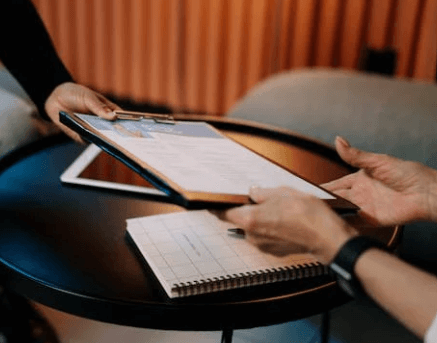Navigating the world of construction in the Sunshine State requires a comprehensive understanding of the Contractor License Requirements in Florida. Whether starting a new venture or expanding your services, having a solid grasp of these stipulations is non-negotiable. In this blog, we will unravel the Florida Contractor License Requirements, ensuring you have all the necessary information to move forward confidently and legally. This guide is designed to serve as your ultimate resource for everything concerning the acquisition and upkeep of your contracting license in Florida, covering intricate application processes and renewal procedures.
In the competitive landscape of Florida’s real estate, investors such as Steve Daria and Joleigh underscore the importance of working with adequately licensed contractors. Ensuring compliance with Florida’s contractor license requirements is a non-negotiable aspect of their investment strategy, safeguarding projects from legal and financial pitfalls. This diligence in selecting certified professionals protects their investments and elevates the standard of construction and renovation projects across the state.
The Importance of Becoming Licensed
First things first—why is becoming a licensed contractor in Florida so crucial? The answer is simple: it’s the law. Florida, like many states, regulates the construction industry to protect consumers.
Unlicensed contractors often operate at lower costs because they skip out on the necessary insurance, bonds, and warranty standards required of those with proper licensure.
This can leave consumers vulnerable to substandard work or potential legal issues in the unfortunate case of an accident.
Contractors must obtain licensure to demonstrate professionalism and quality, in addition to fulfilling legal requirements.
It opens doors to insurance industries, surety bonds, and, most importantly, a broader clientele who understand the importance of hiring a licensed professional.
Determining Your License Category
The first step in the process is determining what category of contractor you aim to be. There are over 20 contractor license categories in Florida, including General Contracting and Swimming Pool Building, listed by the Department of Business and Professional Regulation (DBPR).
Each category has its requirements, so be sure the scope of your work aligns with the category you choose.
For instance, if your work focuses primarily on agricultural projects, you will want to pursue an Agricultural Irrigation Contracting license.
Choosing the right category from the start is imperative, as transferring licenses or changing categories can be time-consuming and costly.
Meeting Basic Eligibility Requirements
The specific contractor license requirements in Florida vary based on the type of contractor you want to be. However, a few general requirements apply to all, including:
- Being at least 18 years of age
- Possessing a valid Social Security number
- US citizenship or proof of authorization to work in the US
Beyond these basic requirements, applicants must verify any experience or education required by the specific category they are licensing.
This is often done by providing evidence of a combination of college education and related experience over a specified number of years, depending on the category.
Obtaining the Necessary Financial Documents
To fulfill the contractor license requirements, you’ll need to provide the following financial documents:
- Please provide proof of workers’ compensation insurance or an exemption if you have no employees.
- General liability insurance
- A credit report, which is now required in Florida as a part of the licensure process
It would help if you were prepared to demonstrate financial responsibility, an integral part of the licensure process.
Preparing for and Taking the Florida Contractor Exam
One of the most challenging steps in contractor license requirements in Florida is taking and passing the state’s examination.
The examination content and passing requirements may vary depending on the license category.
The exam is typically divided into two parts—a business and finance exam and a trade knowledge exam.

The trade knowledge portion tests your understanding of your specific field, while the business and finance portion ensures you have the skills to run a successful contracting business.
There are multiple ways to study for the exam, whether through a classroom setting, online courses, or self-study options.
Applying for Your Florida Contractor License
Once you’ve met all the eligibility requirements, collected and submitted the necessary documents, and passed the state examination, you can apply for your license.
The process involves submitting your application with all the required supporting documentation and paying the appropriate fees.
Please provide all requested information accurately and completely. Any omissions or inaccuracies could delay the processing of your application or even result in the denial of your license.
Completing the Application Review
The DBPR will review your application to ensure all requirements are met. Depending on your application’s complexity and the department’s workload, this can take some time.
It is necessary to regularly monitor the status of your application via the DBPR’s online portal. Once approved, you will receive notification of approval and the issuance of your license number.

Getting Started With Your Business
Before you can begin your career as a contractor in Florida, understanding the fundamentals of a Florida contractor license requirements is crucial.
- Eligibility Requirements: To obtain a contractor license in Florida, you must meet specific eligibility criteria, including relevant work experience, passing a state licensing exam, completing pre-licensure education, and providing proof of financial stability and insurance.
- Licensing Process: Obtaining a contractor license in Florida involves applying to the state’s licensing board or agency, along with the necessary documentation and fees. This application is often followed by an examination to assess your knowledge of construction laws, regulations, and best practices.
- Ongoing Obligations: Once you’ve obtained your license, you have ongoing obligations to maintain it. This includes fulfilling continuing education requirements to stay up-to-date with industry standards, renewing your license periodically, and ensuring compliance with all state and local regulations.
- Legal Compliance: As a licensed contractor in Florida, you’re expected to operate by all applicable laws and regulations. This includes adhering to building codes, zoning ordinances, safety standards, and environmental regulations relevant to your work.
- Permitting Process: Before starting any construction project, you must obtain the necessary permits from the local building department or permitting agency. This process typically involves submitting detailed plans, paying fees, and undergoing inspections at various project stages.
- Displaying Your License: Florida law requires licensed contractors to prominently display their license number in all advertisements, contracts, and business correspondence. Additionally, your license number must be visible at any job site where work is being performed.
- Professional Conduct: As a licensed contractor, you are expected always to maintain professional and ethical behavior. This includes maintaining integrity in business dealings, fulfilling contractual obligations, and resolving disputes fairly and on time.
- Insurance Requirements: Depending on your profession, you may need to obtain specific insurance policies, such as general liability insurance or coverage for workers’ compensation. These insurance policies help protect you, your clients, and your employees from accidents or injuries.
- Continual Improvement: Finally, holding a Florida contractor license is about meeting minimum requirements and continuously striving for excellence in your craft. Whether through ongoing education, skills development, or adopting new technologies and practices, there’s always room for growth and improvement in the construction industry.
Maintaining Your License
Once you’ve obtained your contractor license, the work isn’t over. You must maintain your licensure by meeting continuing education requirements and renewing it on time.
For certified and registered contractors, Florida requires 14 hours of continuing education every two years. This education ensures you stay current on advances in your field, changes to building codes, and business practices that can improve your operation.
Common Pitfalls to Avoid
Throughout this process, several common pitfalls can trip up even the most diligent of applicants:
- Incorrectly identifying the scope of work, which can lead to a delay in the review process
- Failing to fulfill the financial responsibility requirements, particularly the credit report
- Submitting incomplete or inaccurately filled-out applications
- Not keeping your contact information updated with the DBPR leads to missed notifications
Conclusion
Becoming a licensed contractor in Florida is a significant achievement that requires careful planning and dedication. By understanding and following this detailed checklist, you’re already on the right path to launching a successful contracting business in Florida.
Remember to research and prepare, follow the letter’s requirements, and stay informed about the latest updates and changes in Florida’s contractor licensing process. This will result in a smoother application process and lay the foundation for a reputable and thriving career in construction and regulation.
